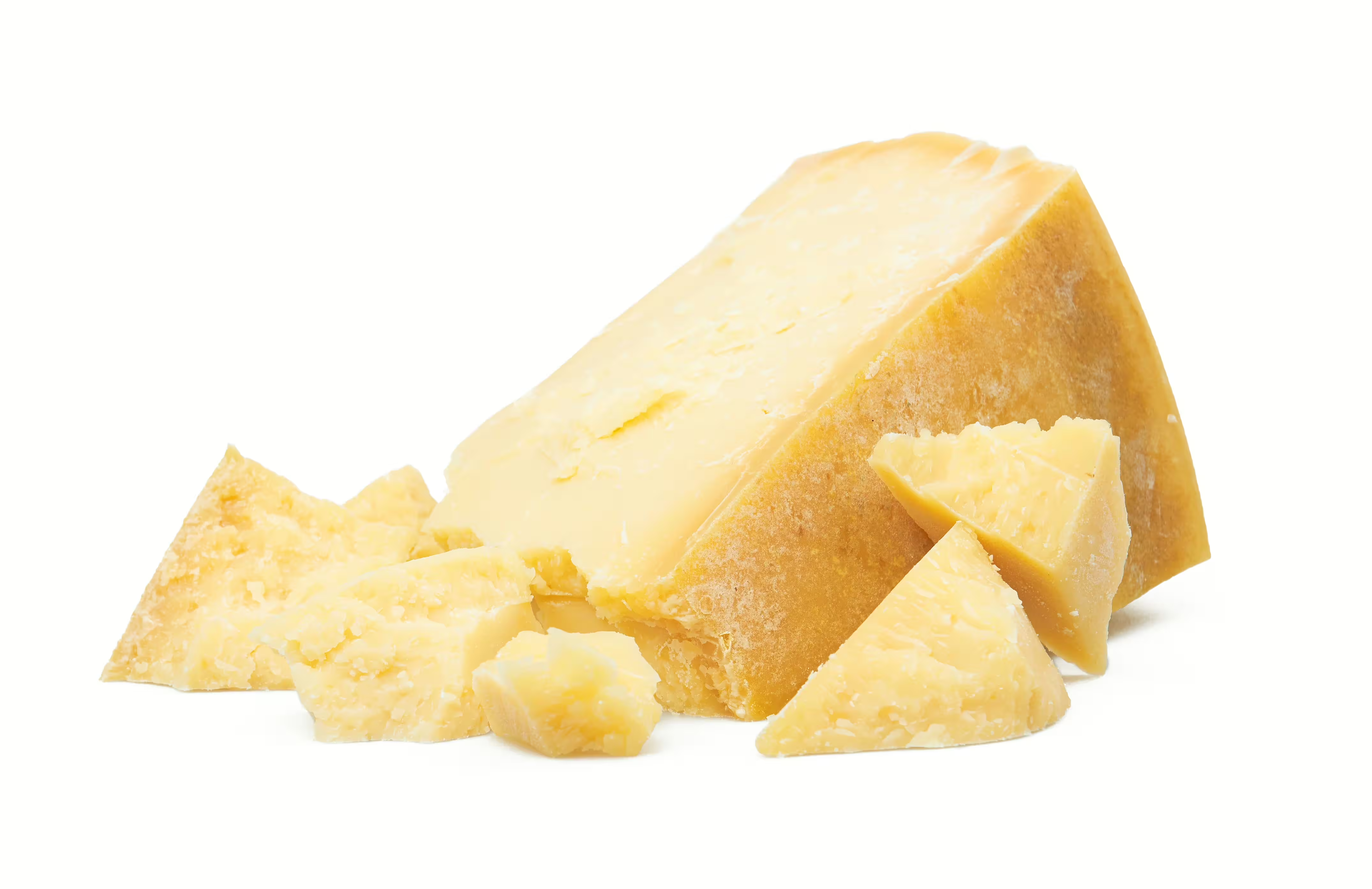Parmesan is an Italian cheese famous for its strong flavor and distinctive taste. It is made from raw and matured cow's milk for at least 10 months. Parmesan cheese is a hard cheese, which means that it has undergone high pressure during its manufacturing process, which gives it its hard and friable texture. Parmesan is often used in the kitchen for its strong and distinctive flavor. It is commonly used to gratin pasta, vegetable and meat dishes, as well as to add crisp and flavor to salads and sandwiches. Parmesan cheese is also often used to flavor sauces and dressing.
